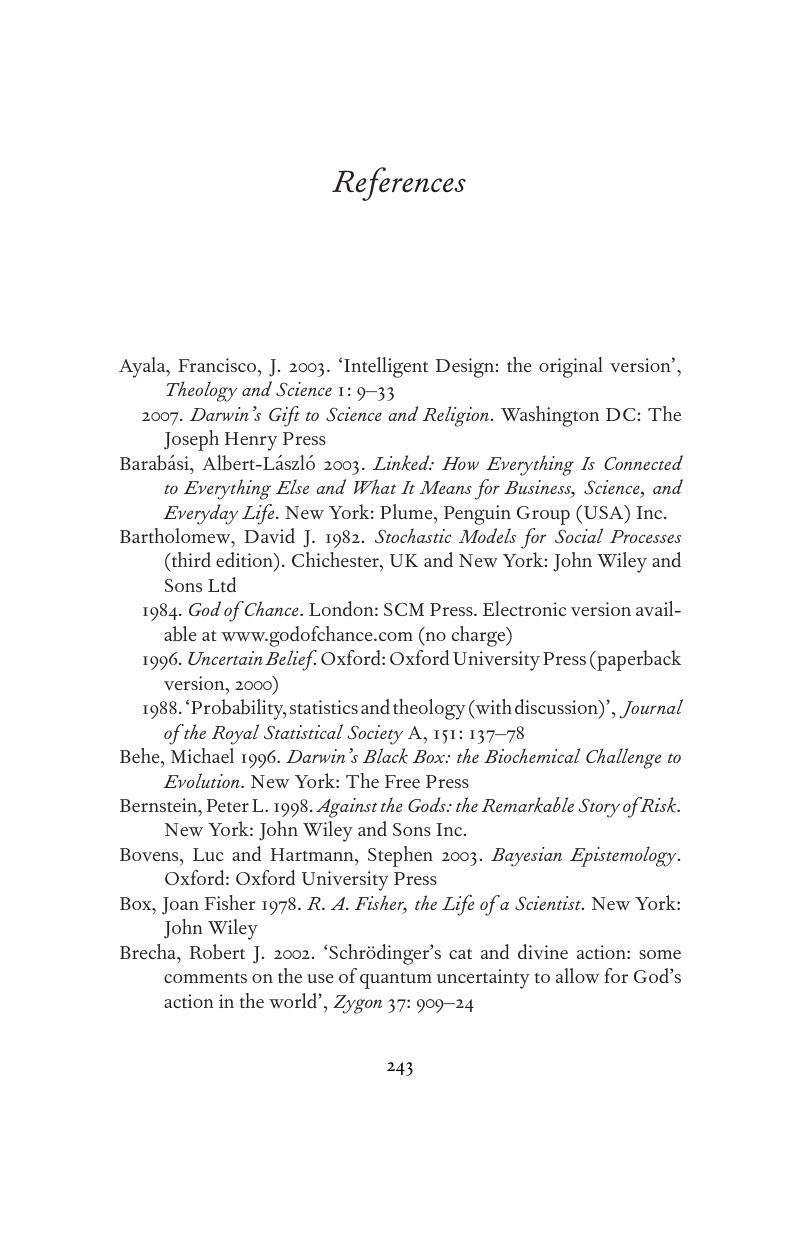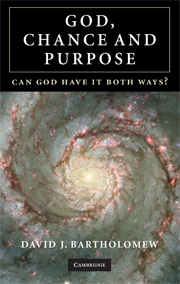Book contents
- Frontmatter
- Contents
- List of figures
- Preface
- 1 What is the problem?
- 2 What is chance?
- 3 Order out of chaos
- 4 Chaos out of order
- 5 What is probability?
- 6 What can very small probabilities tell us?
- 7 Can Intelligent Design be established scientifically?
- 8 Statistical laws
- 9 God's action in the quantum world
- 10 The human use of chance
- 11 God's chance
- 12 The challenge to chance
- 13 Choice and chance
- 14 God and risk
- References
- Further reading
- Index
- References
References
Published online by Cambridge University Press: 05 June 2012
- Frontmatter
- Contents
- List of figures
- Preface
- 1 What is the problem?
- 2 What is chance?
- 3 Order out of chaos
- 4 Chaos out of order
- 5 What is probability?
- 6 What can very small probabilities tell us?
- 7 Can Intelligent Design be established scientifically?
- 8 Statistical laws
- 9 God's action in the quantum world
- 10 The human use of chance
- 11 God's chance
- 12 The challenge to chance
- 13 Choice and chance
- 14 God and risk
- References
- Further reading
- Index
- References
Summary

- Type
- Chapter
- Information
- God, Chance and PurposeCan God Have It Both Ways?, pp. 243 - 247Publisher: Cambridge University PressPrint publication year: 2008



